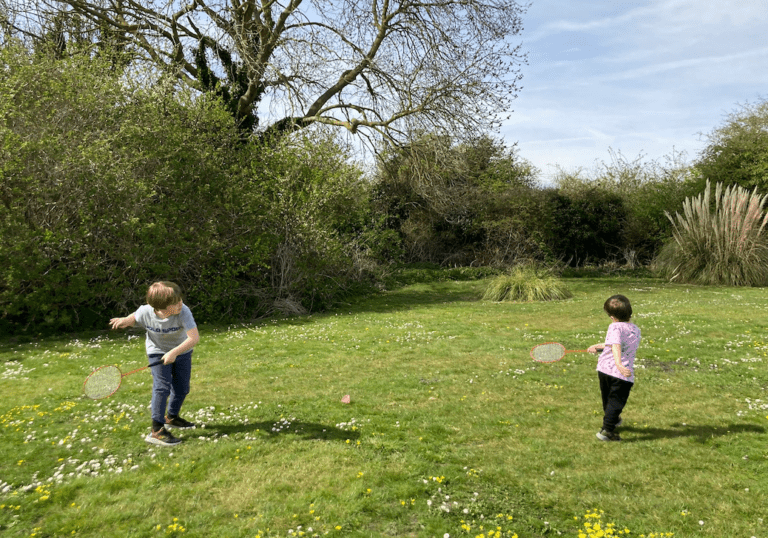If there’s one thing I hate, it’s people “parentsplaining”.
As soon as your first child is due, you are bombarded with unsolicited parenting tips. Particularly irritating are those from people with only a year or two of their own experience!
In fairness, the advice is usually well intentioned. Parenting is a complicated minefield, and everyone has their own methods and opinions. People are only trying to help!
So Why Listen To Me?
With the above in mind, you could reasonably ask why I’m writing a “parentsplaining” article! And, yes, I’ll acknowledge the hypocrisy. But this is a personal blog, on a theme of making “tiny little changes”.
After eight years of parenting two lovely young boys, my wife and I have learned all kinds of lessons – mostly from doing things wrong! Some recent parenting tips we’ve been given have really helped to improve life at home, and that’s what inspired me to write this article.
The reality is that tiny little tweaks to how you do things can make an enormous difference to how your children behave and feel. As such, please take this small attempt at “parentsplaining” in the manner intended!
7 Simple Parenting Tips
1. Finely Tune Bedtime
Would you really expect a 30 minute change to a child’s bedtime to have a profound effect on heir mood and behaviour?
Nor did I. But it turns out that a tiny change like this can make a massive difference.
A couple of months ago, we were having some struggles with our youngest son’s behaviour. When we asked some people for parenting tips, several of them asked about bedtime. I then found an interesting article that listed some ways to tell if a child wasn’t getting enough sleep.
One of them was that they always fall asleep on car journeys. This was definitely the case with our son. So we decided to reassess bedtime. My youngest now goes up half an hour earlier than before, and my eldest half an hour later.
The difference has been massive. After a few days of resenting his earlier bedtime, the younger one is perfectly happy to go up to bed earlier. The older one LOVES is, because his later bedtime makes him feel awfully grown up.
That 30 minute change has improved all of our lives. It’s now much rarer for our youngest to start the day with a tantrum, and the chaotic “witching hour” after dinner has been (mostly) eliminated.

So, if you’re struggling, try some bedtime tweaks. They’ve been a game changer for us.
2. Stick to a Routine – But Don’t Be Scared to Ignore It
Routine can be something of an obsession for parents. There are even books on the subject.
How strictly you adhere to routine is a topic that can trigger heated discussions between different sets of parents. I have to admit that, in some cases, I’ve seen parents stick to routines so obsessively that they compromise their ability to have any kind of life.
Perhaps I could get on board with a life where you “can’t possibly do anything after five” or “absolutely must leave by two” IF it meant that the whole parenting experience was markedly different. But it doesn’t seem that way to me. In fact, if anything, parents who are slaves to routine often seem more stressed and up-tight than those who are happy to roll with it on occasion.
Don’t get me wrong, I understand the value and importance of routine for young children. There’s solid science behind it, proving its impact on everything from sleep quality to academic achievement and social skills. During the working week, we have a pretty strict routine in our home.
However, I’m an advocate for some exceptions on weekends and holidays. Surely children should be allowed to know that weekends and holidays are different and special? At the time of writing this, we’ve just come back from a short holiday, and my eldest LOVED the couple of nights when he was allowed to stay up with mum and dad for a bit. I’d argue that it gives him a greater understanding of the need to knuckle down and stick to the routine on work / school weeks.

The odd late night or abandoned nap schedule isn’t going to do any major harm. In fact, I’d suggest that living a life where having children means you’re no longer allowed any fun and spontaneity is far more damaging.
Feel free to argue with me in the comments!
3. Rewards, Not Punishments
Inevitably, you have to “sanction” your children at certain points. However, bitter experience teaches me that “I’ll take the toy away” or “you’ll lose pocket money” punishments have very limited value.
On the flipside, sticker charts and rewards – for everything from kindness to hand-washing and housework – work consistently. It’s a simple switch from negative to positive reinforcement, and it creates a much better vibe in the home!

I have to confess that I struggled with this initially. I grew up in stricter times, and to begin with I did push back on the idea of rewarding things I thought my children should do anyway, without complaint. But sticking so rigidly to those principles was cutting off my nose to spite my face. Ultimately, we all want less tension and more harmony.
There are some great behaviour charts you can buy, but you’ll probably find your children thoroughly enjoy making them with you too.
4. Learn About What They’re Into
I know more about Minecraft (and the music of Dua Lipa) than I ever wanted to. But nothing makes our children happier than when we take a genuine interest in the things they’re into.
Recently I’ve been helping my eldest set up a YouTube channel. Given that he’s seven, it basically involves me doing a whole bunch of video editing and other techie stuff while him and his friend just play the games! But I honestly think a trip to Disney World wouldn’t make him any happier than the days when I make the time to help him create a new video or try something new on the computer.
Looking back to my own childhood, I remember being obsessively into new things – bands, songs, computers, TV shows – and desperately wanting my parents to engage with me about them. It does – inevitably – involve a lot of nodding along, and saying “cool” and “awesome” when you’d really rather be thinking about something else! But it’s so worth it.
And – you know what? Minecraft is pretty cool.
5. Hand Out Vitamins in the Mornings
There’s still extensive debate over vitamin supplements and whether they’re truly needed for people with a balanced diet. But here in the UK, the NHS now recommends that children from six months to five years old be given supplements that include vitamins A, C and D.
Our eldest still gets vitamins daily (he’s soon to turn eight). Unlike his younger brother, he’s an incredibly fussy eater. As hard as we try, he’s certainly not getting vitamins from broccoli and carrots!
In an ideal world, our children would be tucking into a rainbow of fruit and vegetables every day. But parents in the real world know that’s not always the case. Many adults don’t manage it themselves. As such, supplements can be a good choice.
We currently use the Kid’s Gummies from Feel – which are a big hit with the children. You can also read my Feel Vitamins review.
6. Have Snacks and Meals Ready – to Avoid “Hangry” Moments
Earlier in this list of parenting tips, I mentioned a willingness to step away from the routine sometimes. But there’s an exception: Food.
Adults (well, most of them) can cope if they eat a bit late or even skip a meal. But if you let young children go without a meal at the time they’ve come to expect it, they WILL kick off!
It’s especially important after school, nursery and activities. We now have a (healthy) snack waiting on the table for when they come in the door. Not only does it mean that they’re instantly fed and satisfied, it also means that you get a few minutes to get in the door yourself before the relentless demands begin!
Similarly, if you’re travelling somewhere, think carefully about how and when you will be feeding the children. It makes the difference between hellish and enjoyable (well, tolerable!) car and plane journeys.
7. Build Exercise into Every Day
We’re fortunate enough to live somewhere where it’s possible for the school run to be done on foot (weather permitting). This helps my wife to get her steps in, at the same time as ensuring the children get adequate exercise.

Kids who haven’t “blown off steam” are cranky kids. But – on the other hand – so are over-tired and exhausted kids. Find their “happy medium” and they will behave and sleep better.
This short list of parenting tips specifically focuses on things that have worked for us. Your mileage may vary. I’d love to hear of any tips you’d like to share – please feel free to use the comments.






